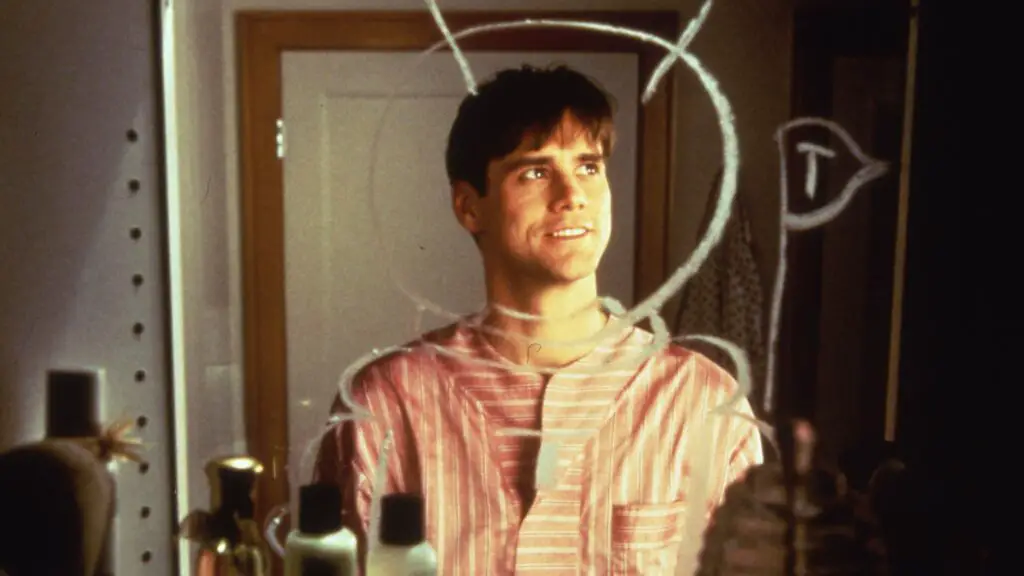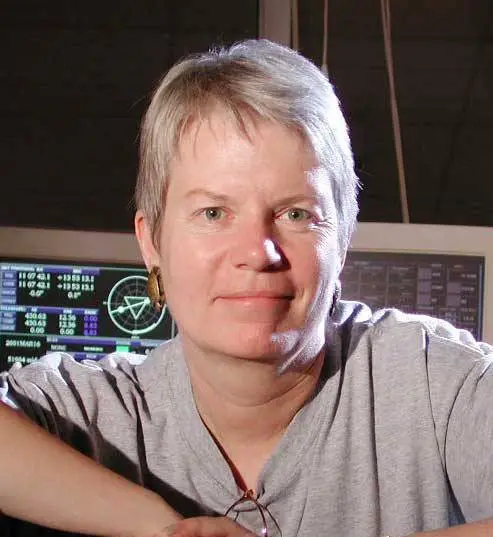Is Earth part of an alien zoo? The Zoo Hypothesis explores why extraterrestrials might be observing us—without ever making contact.
What Is the Zoo Hypothesis?
Imagine Earth as a grand exhibit inside a cosmic zoo—watched by advanced alien civilizations that choose not to interfere. This provocative concept, known as the Zoo Hypothesis, is one of the most fascinating answers to the Fermi Paradox: If intelligent life is statistically likely in the universe, why haven’t we found any?
First proposed in the 1970s by astronomer John A. Ball (Wikipedia) of MIT, the Zoo Hypothesis suggests that extraterrestrial beings are deliberately avoiding contact with humanity to allow natural cultural evolution—much like zookeepers observe animals without interference.

photo: Sir John Ball FRS / credit: The Royal Society
According to Ball’s original paper titled “The Zoo Hypothesis”, the lack of contact is not due to absence of alien life, but rather a policy of non-intervention. He theorized that the universe could be teeming with intelligent life that views us as too primitive for open communication. This restraint could stem from ethics, protocols, or a galactic directive—paralleling the Prime Directive in science fiction like Star Trek.
🧬 Origins and Scientific Support
Since Ball’s proposal, the hypothesis has gained traction among scientists exploring the astrobiological and sociological dynamics of potential alien civilizations. Researchers from institutions such as the University of Oxford and SETI (Search for Extraterrestrial Intelligence) have explored its plausibility, often using models of civilizational maturity and signal detection theory.
In a 2019 study, a team led by Dr. Zaitsev proposed that if extraterrestrial civilizations are capable of detecting Earth’s radio signals, yet choose not to respond, it may indicate intentional radio silence—suggesting that the Zoo Hypothesis could be a form of passive observation, not disinterest.

Photo: Alexander Leonidovich Zaitsev / Credit: Seth Shostak.
Other studies from research groups in Europe and Japan explore how evolutionary game theory supports this behavior, suggesting that in a highly populated universe, cooperation through silence may be the optimal survival strategy. If one civilization breaks this pact and interferes with a primitive one like ours, it could trigger unpredictable consequences for the cosmic order.
🌌 How It Differs from Other Theories
Unlike the Dark Forest Hypothesis, which assumes the universe is hostile and civilizations remain silent out of fear, the Zoo Hypothesis frames alien silence as benevolent or neutral. Instead of aggression, there’s patience. Instead of danger, there’s observation.
It’s not that aliens are hiding from us out of fear—they might simply think we’re not ready.
Variants: Earth Zoo, Galactic Zoo, and Human Zoo Hypotheses
The core idea of the Zoo Hypothesis has branched into several compelling sub-theories, each offering a unique lens through which to examine humanity’s place in the cosmos.
Earth Zoo Hypothesis
This variation views Earth itself as the focal point of alien observation—a controlled habitat where civilizations monitor the development of intelligent life. Unlike general galactic silence, this theory suggests targeted surveillance of our planet. It’s a favorite among those who study anthropic reasoning, proposing that we might be the only species under active observation due to our technological emergence.
This idea aligns with simulations conducted at the Max Planck Institute for Astronomy, where researchers modeled a galaxy filled with long-lived civilizations able to detect and monitor new intelligent species. Their conclusions pointed to the feasibility of localized surveillance zones, which Earth could easily be part of.
Galactic Zoo Hypothesis
Broader in scope, the Galactic Zoo Hypothesis posits a structured, hierarchical society of civilizations—like an interstellar United Nations—governed by strict ethical codes about first contact. It theorizes that contact with developing planets is prohibited until specific milestones are reached, such as interstellar travel, planetary unification, or mastery over quantum communication.
This view finds support in cultural anthropology analogies, comparing alien behavior to how isolated human tribes are studied but not interfered with until deemed ready. Recent theoretical work at Cambridge’s Centre for the Study of Existential Risk emphasizes that if such a council exists, their logic may follow advanced technological maturity thresholds, similar to Kardashev scale rankings.
Human Zoo Hypothesis
A more psychological and philosophical take comes from the Human Zoo Hypothesis, which speculates that we are kept not just for observation but potentially for entertainment, experimentation, or containment. Popularized in speculative fiction and Reddit forums alike, this theory draws chilling parallels with real-world zoo dynamics—where the watched are often unaware of their status.
Some scholars, like neuroscientist Dr. Susan Schneider (Wikipedia), propose that if we’re in a human zoo, it may be because advanced AI or post-biological entities have taken over the role of “zookeepers,” conducting experiments on consciousness and social evolution.

Photo: Dr. Susan Schneider / credit: Medium
From Reddit Theories to Pop Culture
Online communities have helped the Zoo Hypothesis evolve into a mainstream cultural phenomenon. On Reddit, particularly in r/aliens, r/FermiParadox, and r/HighStrangeness, discussions around the idea often tie into:
- UFO sightings being surveillance drones
- Alien abduction stories reframed as data collection missions
- The “Galactic Quarantine” theory, in which Earth is temporarily cut off from cosmic society
In pop culture, the idea echoes in everything from The Truman Show to Westworld, to the alien overlords in Childhood’s End—portraying humanity as unaware inhabitants of a system far beyond their control.
Many fans also draw connections to Black Mirror’s themes, where simulations and artificial environments explore the limits of consciousness and morality—key themes mirrored in the Human Zoo version of the hypothesis.

Photo: The Truman Show. is a 1998 American psychological comedy-drama film written and co-produced by Andrew Niccol
Scientific Criticism: Cracks in the Glass Cage
While the Zoo Hypothesis offers an elegant answer to the Fermi Paradox, many scientists argue it’s philosophically seductive but scientifically flimsy. Here’s why:
🧪 Falsifiability and the Scientific Method
One of the main criticisms is its lack of testability. The hypothesis can’t be falsified—there’s no experiment or observation that could definitively disprove it. This violates a core tenet of the scientific method, making the Zoo Hypothesis more of a philosophical construct than a scientific theory.
As physicist and SETI pioneer Dr. Jill Tarter (Wikipedia) once put it, “A theory that explains everything explains nothing.” If any lack of evidence can be hand-waved as deliberate alien concealment, we’re no closer to understanding the truth.

Photo: Dr. Jill Tarter
🧭 Sociological Projection
Another critique is that it anthropomorphizes alien intentions. Assuming extraterrestrials would act like humans—by organizing councils, following ethical standards, or having curiosity about less advanced species—is a massive cultural projection.
Astrobiologists like Dr. Jason Wright (wikipedia) caution against applying human analogies (zoos, U.N., surveillance ethics) to non-human intelligence. Advanced alien behavior may be incomprehensible or indifferent to our existence altogether.

photo: Dr. Jason Wright
Contradictions Within
If Earth is being quarantined, why do UFO sightings persist? Why the mixed signals—sometimes obvious, sometimes hidden? Proponents of the Galactic Zoo theory must reconcile these inconsistencies, which dilute the hypothesis.
Also, the idea of a unified galactic civilization imposing a universal non-interference policy assumes extreme cooperation across light-years—something even humanity struggles to achieve on Earth. Critics argue that in a galaxy with billions of star systems, at least one “rogue civilization” would have broken the silence.
What the Zoo Hypothesis Really Tells Us
Despite the scientific concerns, the Zoo Hypothesis serves a powerful introspective function. It forces us to confront difficult questions:
- Why do we assume we’re important enough to be watched?
- What would make us “ready” for contact—and who decides?
- Are we searching for life, or a mirror of ourselves?
As philosopher Nick Bostrom notes, our search for extraterrestrials may say more about human psychology than cosmic reality. The desire to be observed, judged, or saved could stem from existential loneliness—a deep need to not be alone in the universe.
Others interpret the theory as a modern myth, replacing ancient gods with cosmic watchers. In this view, the Zoo Hypothesis becomes a new form of cosmic storytelling, blending science, spirituality, and identity.
Conclusion: Are We Alone, or Just Not Interesting Enough?
The Zoo Hypothesis may never be proven, but its haunting elegance lingers in every dark patch of the sky. It flips the Fermi Paradox on its head—not asking “Where are they?”, but rather, “Why would they bother?”
Maybe Earth is a controlled experiment. Maybe we’re a primitive planet on a cosmic preserve. Or maybe the silence is just that—silence. Regardless, the hypothesis leaves us with one undeniable truth:
The search for extraterrestrials is also a search for meaning.
Whether we are being watched, ignored, or truly alone, how we answer that silence says more about us than it does about the stars.
Future Outlook: How Science May One Day Unveil the Cosmic Truth
Breakthroughs in radio astronomy, AI-assisted signal analysis, and interstellar propulsion could change everything. Missions like the Square Kilometre Array and Breakthrough Listen are collecting mountains of data, and quantum computing might one day parse it in ways we can’t yet imagine.
We may also refine our biosignature detection capabilities on exoplanets, narrowing the window of uncertainty. If alien life exists and chooses to stay hidden, we might still catch a glimpse—just as animals occasionally notice the zookeepers watching them.
Maybe you also like:
- Are We Living Inside a Black Hole? A Mind-Bending Theory Gaining Traction
- Possible Signs of Life Detected on Exoplanet K2-18b
- The Dead Internet Theory: Are You Talking to Real People Online—Or Just Bots?
- Mapping the Mouse Brain: A Leap Toward Understanding Human Intelligence
- Mandela Effect Explained: What It Is, Why It Happens, and Famous Examples
Follow me on X, YouTube,
Pinterest , Facebook
Threads and Instagram
For more updates visit: flashpointnews.com.br



7 thoughts on “Are We Just Animals in a Galactic Zoo? Exploring the Zoo Hypothesis”